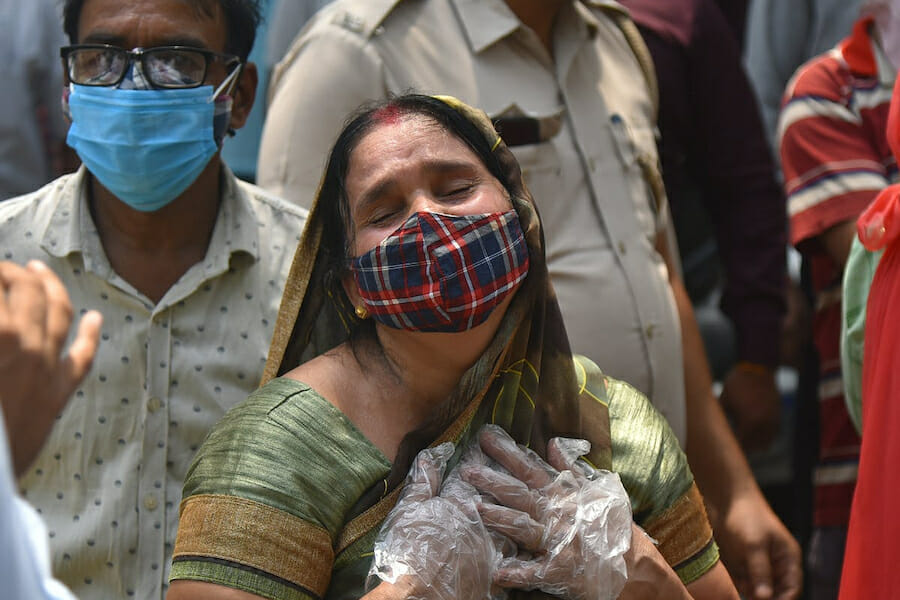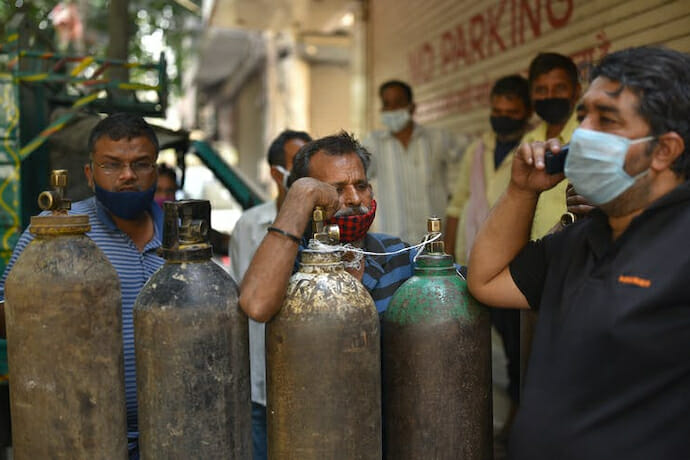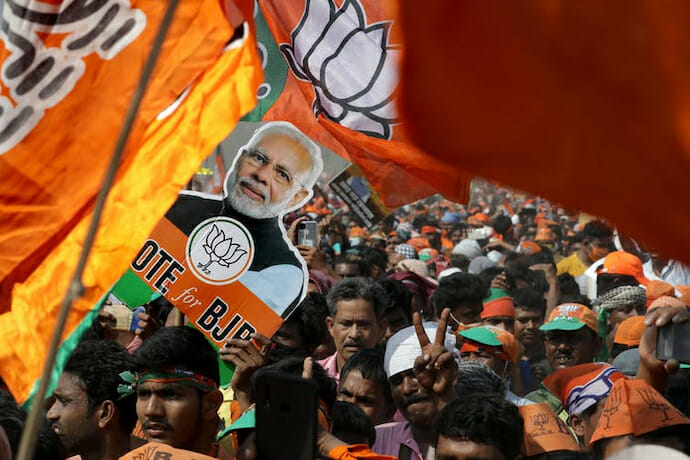
COVID in India: How the Modi Government Prioritised Politics over Public Health
The Indian government urgently needs to postpone the forthcoming elections and suspend campaigning, especially mass gatherings, in the face of the COVID pandemic, which is fast developing into an unprecedented humanitarian disaster. This is the main message of an open letter signed by a long list of South Asian medical professionals and published in The BMJ on April 28.
Mass election rallies in West Bengal and other states recently have been one of the most disturbing aspects of the Modi government’s handling of the pandemic crisis so far. Dr. Navjot Dahiya, the vice-president of the Indian Medical Association, called Prime Minister Narendra Modi a “super spreader” for organising and promoting such large gatherings.
Only a few weeks ago, India was boasting of being the largest manufacturer and supplier of COVID-19 vaccines to the World Health Organization’s Covax scheme. Now, as the second wave brings massive daily rises in newly reported infections and deaths, India has gone from claiming to be the “pharmacy of the world” to becoming a site of mass devastation, in need of international aid and supplies.
This descent into disaster in India began through the Modi government’s response at the beginning of the pandemic. For a start, India came out of lockdown in June 2020, despite rapidly rising daily rates of infection. This was after one of the most draconian and brutal lockdowns was announced in March 2020 with only four hours’ notice. Many people starved and thousands of migrant workers, who opted to return to their villages, struggled to make the long journeys home.
More recently, even as desperate scenes of people seeking oxygen, ICU beds, and cremation facilities were being broadcast around the world, the health minister claimed that India has one of the lowest COVID-19 death rates.
Corporate interests
Since gaining power in 2014, the Modi government has prioritised its relationship with big business – through a mix of authoritarian “Hindutva nationalism” and corporate ideology. Critics say that, for Modi, the interests of a narrow sector of society, India’s multinational corporations – what he calls the “wealth creators” of the nation – are more important than the mass of the people.
And big business has done very well out of Modi’s government. Large Indian corporations, such as Reliance Industries Ltd and The Adani Group, have been able to diversify their stakes in all aspects of the economy, including health, communications, manufacturing, and agriculture.

The pandemic has presented huge opportunities for India’s super-rich. The country’s billionaires achieved a 35% growth in their net worth between April and July 2020. Top of the list of those billionaires is Mukesh Ambani, whose Reliance Industries has been active in the production of vaccines and oxygen. Cyrus Poonawalla, whose Serum Institute of India is the country’s biggest manufacturer of vaccines, saw his wealth increase by a staggering 84.7% to $13.8 billion.
Seeking answers
Meanwhile, during the public health emergency over the past year, the government has focused its attention on tightening controls on information, freedom of speech, and the right to protest or dissent. Stringent laws on NGOs receiving foreign funds have stunted the capacity of civil society to respond to the crisis. Strict interpretations of the Foreign Contribution Regulation Act have allowed the government to crack down on organisations it deems unfavourable by using it as “a tool to silence” civil society. In this way, Modi has prioritised politics over public health.

Meanwhile, groups supporting Modi – some with ties to the Rashtriya Swayamsevak Sangh, a right-wing paramilitary volunteer organisation with membership in the millions – and the Hindutva agenda have been permitted to fundraise with little or no scrutiny.
There is also a growing scandal about how funds raised from public donations to combat COVID have been allocated and spent. Questions are being asked about how the PM Cares fund (Prime Minister’s Citizen Assistance and Relief in Emergency Situations) has assigned tenders to companies bidding to build oxygen-producing plants – most of which have yet to begin construction.
People power
There is growing evidence of coordinated opposition to the Modi government’s handling of the crisis, particularly emerging from civil society groups involved in the farmers’ protest. Where “langar seva” (volunteer-run community kitchen traditionally associated with Sikh communities) has been a lifeline of sustenance during the pandemic, in recent days there have been examples of “oxygen langar” being offered by Sikh organisations and temples in the similar spirit of community service at a time of government denial and silence.
But repression is now open. Yogi Adityanath, the chief minister of India’s most populous state of Uttar Pradesh, said on April 25 that anyone spreading “rumours” of oxygen shortage should have their property seized. He has also threatened to invoke the National Security Act to take action against any hospital or individual who reports such a shortage.
So far the Modi government has not responded to the doctors’ plea to stop campaigning in the wake of the explosion of new infections and the pressure it is putting on the country’s failing health service. And, from the scenes of the rapturous crowds at BJP election rallies during India’s longest ever state election, it seems that Narendra Modi and the BJP are willing to put their determination to win the election ahead of all else, including the country’s safety and the protection of human life.
This article was originally published on The Conversation. Read the original article.

